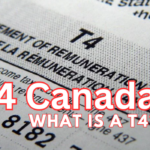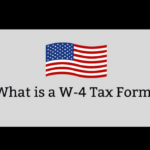Check out the latest update on the Big Tax Changes in the USA: Many Tax Benefits Will Expire Due to the Tax Cuts and Jobs Act (TCJA). The TCJA, signed by President Donald Trump and effective from 1 January 2018, was the biggest update on the tax system in 30 years.
Big Tax Changes in USA
Tax Cuts and Jobs Act was part of President Donald Trump’s tax reform package, which was introduced in 2017, and most of the provisions will cease after the 2025 tax year. During that time, taxes will be raised by 1 to 4 per cent for most taxpayers. TCJA made significant changes for both businesses and individuals.
For businesses, it introduced a flat corporate tax rate of 21 per cent, whereas, for individuals, it temporarily lowered tax rates and increased the standard deduction but removed personal exemption and individual health insurance mandate. Additionally, it has adjusted the Child Tax Credits and Estate Laws.
| Important Links |
Many Tax Benefits Will Expire Due to the Tax Cuts and Jobs Act (TCJA)
Most of the changes that Trump made in the TCJA are set to expire after 2025. Here is the list of tax benefits that will lapse in the upcoming year.
Corporate Tax Changes: One of the key features of the TCJA was the reduction of the corporate tax rate from a tiered structure with a maximum rate of 35 per cent to a flat rate of 21 per cent. This rule was designed to enhance the competitiveness of American business globally by making the US a more attractive place for investment. Exponents argued that lower tax rates would motivate the company to reinvest domestic profits, stimulate economic expansion and create more job opportunities.

Individual Tax Changes: The TJCA made several adjustments to the income tax brackets and deductions for the individual. It kept a seven-tiered income tax structure but lowered most tax rates. The highest individual income tax rate fell from 39.6% to 37%, benefiting higher-income holders. The law raised the standard deduction significantly, nearly doubling it for almost all the filers. As of 2024, the standard deduction is $14600 for single filers and $29,200 for married couples filing jointly. However, it suspended the personal exemptions, previously permitting individuals to deduct a set amount for themselves and dependents until 2025.
Other Individual Tax Provision: The TCJA abolished the Affordable Care Act’s individual mandate, which required individuals to have healthy insurance coverage or face a tax penalty. This change was controversial, with critics arguing it could result in higher premiums for those remaining in the insurance pools. On the positive side of the households, the law enhanced the Child Tax Credit to $2000 for each qualifying child and introduced a $500 non-child dependents.
Notably, these credits are subject to income, will be discontinued for higher earners, and are scheduled to terminate in 2025.
|
Important Links |
All We Know
The Tax Cuts and Jobs Act presents several ways to create a tax system supporting growth and responsible spending for households and businesses. These options aim to achieve various goals without significantly shifting who pays taxes.
Investment and Business Incentives: Apart from the tax rate reduction, the TCJA aims to encourage business investment by allowing businesses to immediately deduct costs from certain specific capital investments, known as bonus depreciation, rather than decline the value over time. These changes were intended to motivate the companies to invest in equipment and infrastructure to boost productivity and economic growth.
Deduction and Exemption Impact: The TJCA made some major changes to the exemption and deduction by capping the mortgage interest deduction for new loans at $ 750,000, down from $1 million from the previous law, chiefly affecting the homeowners with larger mortgages.
Economic and Political Impact: The passage of the TCJA was contentious along party lines, reflecting broader debates about the role of government in taxation and economic policy. Supporters argued that lower taxes would stimulate economic growth and job creation, while critics raised concerns about increased federal deficits and the distributional impact of tax cuts favouring higher-income households
The Estate tax exemption was temporarily raised under the TCJA. As of 2024, the exemption is set at $13.6 million for individuals, delivering relief for larger estates. To collect more information on taxation changes, please visit our home page.





